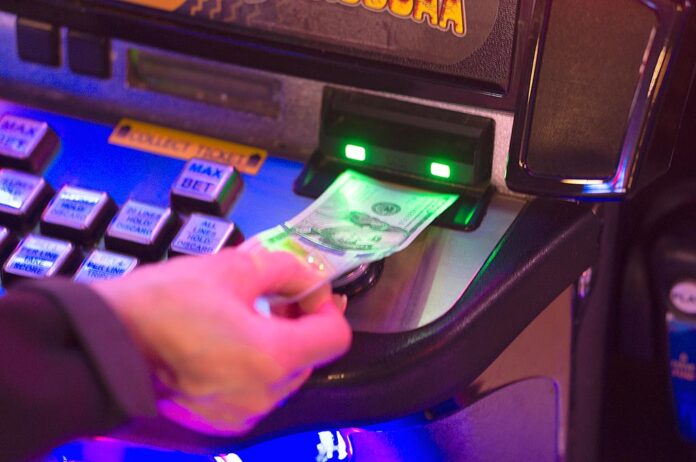In virtually every society on Earth, gambling is a socially acceptable form of entertainment.
From betting on sporting events, to blackjack, scratch tickets or video poker, Oregon is no exception. Some enterprising patrons even use their talent and creativity to increase their odds of winning, much like the Tigard man profiled in last month’s issue of Tigard Life, who developed his own website to help scratch-it players choose tickets with better odds of winning.
“Gambling has been part of human culture pretty much since our inception in one way or another,” said gambling addiction counselor John Ackley, a Tigard resident who works for Bridgeway Recovery Services in Salem.
But underneath this enormous industry, which directs significant revenue to both business and government alike, hundreds of thousands of Oregonians pay for that entertainment with a crippling habit that counselors say can be every bit as bad or worse than addiction to alcohol or other drugs.
“We have an addiction that is literally destroying lives and it’s skating under the radar,” Ackley said. “Gambling hurts people just as catastrophically as any of those substance addictions. But the state encourages it because we need the bucks.”
According to the Oregon Health Authority, around 84,000 people are experiencing moderate or serious problems with gambling, while 180,000 more are at risk of developing a problem at any given time.
Further, gambling addiction has direct links to crime, suicide and mental health issues. A 2009 University of California at Los Angles study estimated that 25 percent of admitted problem gamblers go on to commit crimes to fund their habit, while between 40 and 60 percent of people who do end up seeking help for gambling addiction ultimately relapse.
Against that backdrop, around $7.5 million in Oregon Lottery revenue goes annually to fund gambling addiction services. Each county has at least one state-designated treatment provider where people can obtain counseling or treatment free of charge. This includes not only people with a gambling problem, but also those affected by a person with a problem.
One Tigard professional woman spoke with Tigard Life on the condition of anonymity. Now in her 50s, she grew up with alcoholic parents but was never interested in gambling. But 11 years ago, her mother died. Then her grandmother and stepfather died over the course of the next year, so she turned to video poker in social settings as a way to cope.
“It just became a way to escape and become social with people,” she said. “That’s how it got started.”
Video terminals are especially problematic for addiction treatment providers.
“In the addiction fields we have a name for them,” Ackley said. “We call them the crack cocaine of gambling.”
It’s not just their accessibility – more than 2,000 establishments in Oregon alone host video gaming – it’s also that video machines allow people to bet in incredibly rapid succession, thus reinforcing the behavior.
The Tigard woman found this out the hard way. Even after two separate 30-day stints in a Salem rehabilitation facility and endless Gamblers Anonymous meetings, she has lost her entire retirement savings, a career in project management, friends, and family relationships. Yet, she still finds herself drawn to gambling, which has only gotten worse during the COVID-19 pandemic. This opened her up to online gaming while reducing her ability to attend support meetings or seek help.
“I would tell anybody, don’t even try it, don’t even sit down and try it,” she said. “It just sucks you in when you’re not paying attention.”
If you or someone you know has a problem with gambling, there are resources available, visit Oregon Problem Gambling Resource: www.opgr.org, or call 1-877-695-4648 (877-MY-LIMIT).























